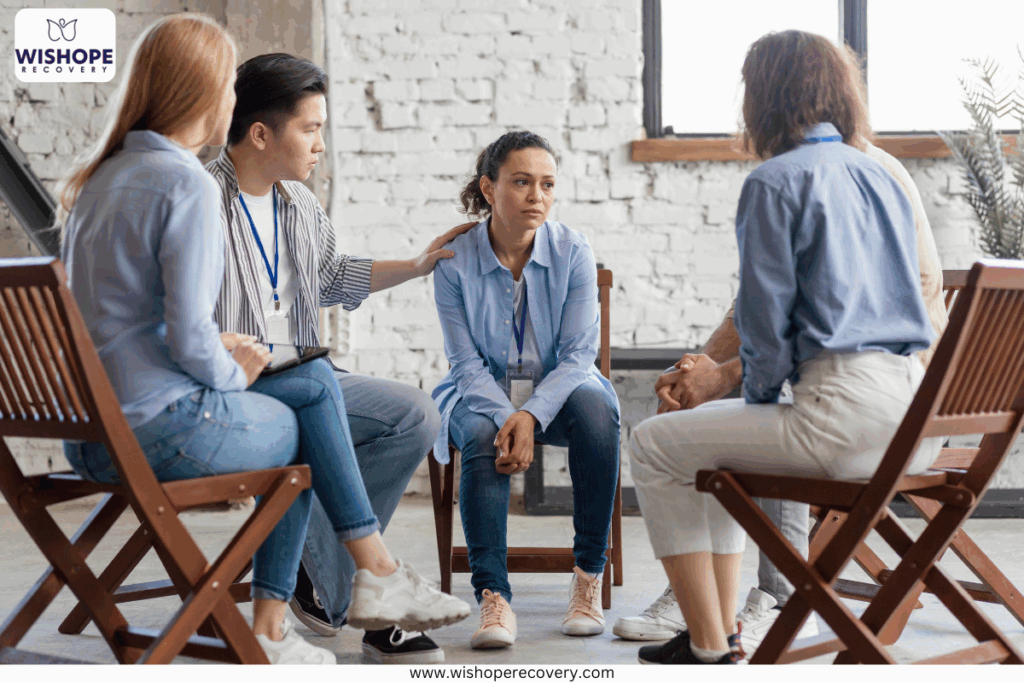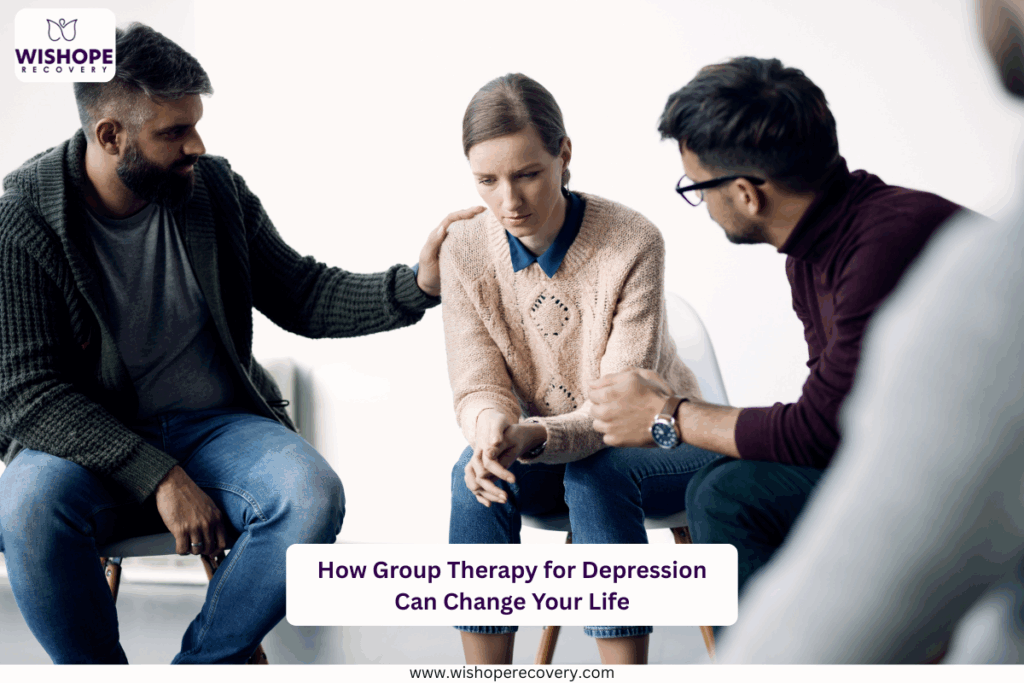Depression may be isolating, overwhelming, and unbearable to deal with alone. Recovery does not have to be isolating. Depression group therapy is a comforting and safe setting, where individuals may learn from others, share their experiences, and acquire coping strategies. At WisHope Recovery, we believe healing is best accomplished within connection with others and when one feels supported and understood.
In this blog, we will discuss how group therapy can help change your mental health journey, what to expect from group therapy, and why group therapy for depression is an effective mechanism for sustainable recovery.
What is Group Therapy for Depression?
Group therapy is a type of psychotherapy conducted by a trained mental health professional. Rather than seeing each other one on one, members see each other in groups, usually to discuss their successes and setbacks. Group therapy includes structured time for education, emotional support, and practical strategies for managing depression; group therapy sessions are organized and confidential.
Group Therapy Benefits for Depression
It can make a real difference in a person’s experiences with depression in a few key ways:
- Reduces Feelings of Isolation: you learn that you are not alone in your experience.
- Provides Emotional Support: hearing other’s experiences makes you feel validated about what you have been going through.
- Builds Coping Skills: most group therapy sessions provide an opportunity to practice evidence based coping skills.
- Improves Communication: you can practice sharing your thoughts and feelings in a safe environment.
- Ray: an opportunity for accountability to your group members, you will have group members to support you to continue healing or growing.
- Exposure to More Perspectives: you can gather information from people who are experiencing similar things in their lives.
What to Expect During Group Therapy
- Confidentiality: Our focus is to ensure a safe and non-judgmental environment.
- Guided Format: The clinician will facilitate and direct the discussions and activities.
- Sharing among participants: Participants have the option to speak (not forced).
- Skills: Each session will provide specific skills to work on managing depression, such as mindfulness, breathing techniques, or CBT methods.
- Regularity: You will be meeting weekly or every other week. This regularity will help establish patterns and allow steady progress.

Why It is So Effective
In isolation, depression grows; group therapy sessions stands as an antidote where isolation is replaced with relationship. Open talks in the safe path where people feel understood and accepted have the magic to diminish shame and biting self-criticism. With one more session, a member will get to bond and trust one another in the group, discover new ways of communication, learn to support one another, and cope with symptoms of depression.
Group sessions at WisHope Recovery are just one aspect of treatment wherein there is usually an intertwining with one-on-one counseling, experiential therapy, and a vast array of other evidence-based approaches.
Tips for Get the Most Cure from Group Therapy
- With an open mind, tell yourself that trust needs time.
- Promise that you will go to all the sessions.
- Listen to others; respect the time that everybody takes to share his/her story.
- Try to apply the skills you are learning within the group in your life outside.
- Let yourself celebrate the little successes.
Frequently Asked Questions
Q1: Who qualifies for group therapy for depression?
Anyone who is experiencing depression, whether mild or severe, can be helped. Group therapy is especially helpful to those who are feeling isolated, want to learn to communicate better, or need additional support.
Q2: What size are the groups?
Most therapy groups have 6–12 people. This is intimate enough for everyone to share feelings and experiences with one another, but big enough to gain a variety of perspectives.
Q3: Can I participate in group therapy and individual therapy?
Yes! Group therapy is a great complement to one-on-one counseling and allows for individualized attention.
Q4: How long do I have to participate in group therapy for depression?
It really depends on the individual. Many programs recommend a minimum of 8–12 weeks of participating in group therapy, but many groups continue for several months or even longer to create ongoing support.
Q5: Is everything I say in group therapy confidential?
Yes, confidential status is a matter of utmost importance in group therapy. All members will hold each other to confidentiality.
Final Thoughts
Group therapy for depression serves as much more than a healing treatment; it should really be a healing community. Participants make tremendous emotional growth and life-changing transformations, by identifying with others, learning coping strategies, and receiving professional help.
At WisHope Recovery, we strive to develop hope and resiliency by providing evidence-based therapy programs and compassionate care.

